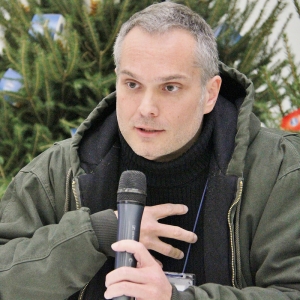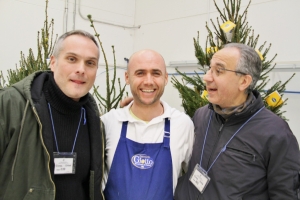
Written by Joshua Stancil
Sad hours seem long, Shakespeare wrote.
And eighteen years in prison make for interminably long hours.
However, I was fortunate in a way that many inmates are not: during my eighteen years I met, providentially, Catholics beyond the razor wire fence who visited me regularly and accompanied me during the final twelve years of my sentence. This is an exceedingly rare gift, and I’m aware of having received a great grace.
Upon my release, I met – again, providentially – the founder of Dismas Ministry, and a friendship was struck. He invited me to the Board of Directors, where I have happily served for several years now. Through my own experience of nearly two decades in prison, I was intimately aware of the deep spiritual need of inmates. I was astonished, however – and remain so – by the scope of Dismas Ministry’s outreach and its profound impact on the lives of men and women behind bars.
My personal experience in prison and my work with Dismas Ministry have provoked me to think more deeply about the very nature of prison ministry, and why the Church proposes it as a corporal work of mercy. When asked why prison ministry is important, Catholics will often answer, “Well, in the Bible we hear Jesus say, ‘I was in prison and you came to me.’” Which is true, of course, but as an answer it leaves a lot unexamined. Consider the context of Christ’s words: “Come, O blessed of my Father, inherit the kingdom prepared for you from the foundation of the world; for I was hungry and you gave me food, I was thirsty and you gave me drink, I was a stranger and you welcomed me, I was naked and you clothed me, I was sick and you visited me, I was in prison and you came to me” (Mt 25:34-36, RSVCE). At first glance, Christ’s reference to prison seems strangely out of place, tacked on at the very end. After all, in His other examples, Jesus references basic human necessities: food and drink, shelter from the elements, healing from illness. But then He adds an odd, seemingly out-of-place reference to prison.
But is it really so strange? In this life we will always need food, water, and shelter. And we will always need mercy. Jesus, never scandalized by human weakness, uses the image of incarceration to drive home His point.
The Church is the continuation of Christ’s physical presence in history. And for twenty years now, Dismas Ministry has been, in a manner both quiet and unassuming, Christ’s presence to countless men and women behind bars. This is a fact worthy of our celebration and continued support.
Joshua Stancil is a Dismas Ministry board member, a published author, and a native of North Carolina. A frequent speaker at restorative justice conferences in both America and abroad, his writing has appeared in Magnificat, Traces, and Convivium. He can be reached via joshua.stancil@drm.media.
Joshua greets inmates after speaking at the prison in Padua, Italy.






